
Speaking from the OIV’s headquarters in Paris on 11 April, Director General Pau Roca presented information on wine production, wine consumption and international trade in 2018.
- World area under vines 7.4 mha in 2018
- Strong growth in production, which reached 292.3 mhl, an increase of 42.5 mhl since 2017
- Consumption relatively stable at 246 mhl
- World wine trade on the rise: 108 mhl traded in volume, and a 1.2% rise in value to reach 31.3bn EUR
Global State of Conditions Report
PPT Presentation [FR]
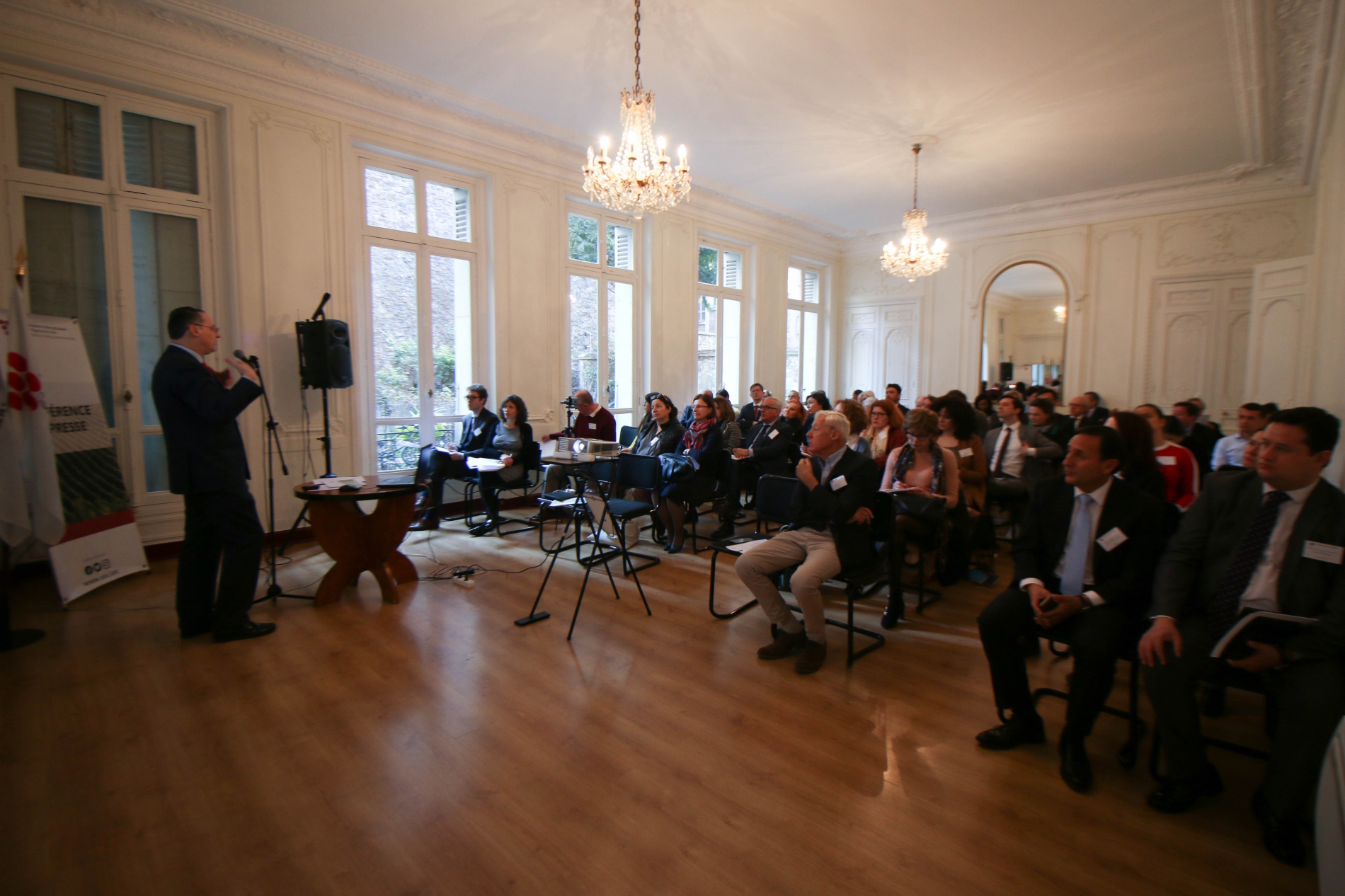
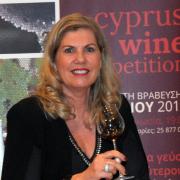
Regina Vanderlinde also took part of the 12th Cyprus Wine Competition, an event under the OIV Patronage.
We caught up with the President to discover her impressions about her visit and the role of wine competitions.
How was your visit to Cyprus?
This was my first time in Cyprus. I am impressed by this country’s beauty and the warm welcome that I received. I had the opportunity to have a bilateral meeting with the Minister of Agriculture, Rural Development and Environment, Costas Kadis, to whom I expressed the satisfaction of the OIV by the quality of the relationship maintained with the Cypriot delegates. Within the framework of my visit I participated at the technical conference “The wine production in the sphere of differentiation and global competitiveness” presenting the role of the OIV as a scientific and technical reference in the global wine sector. Finally, I took part in the 12th edition of the national Cyprus Wine Competition.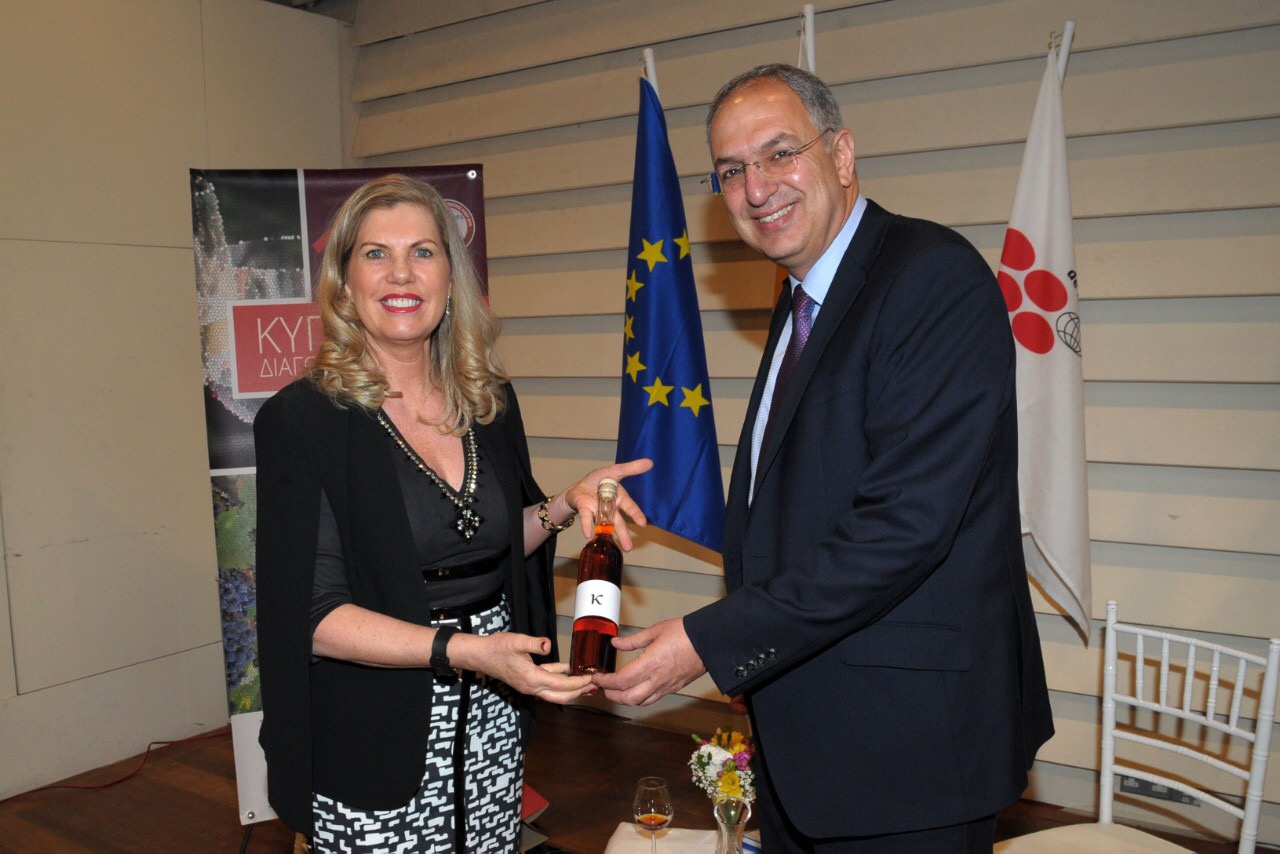
Lately you have participated in several competitions with the OIV patronage. What have you think about the Cyprus Wine Competition?
The Cyprus Wine Competition has OIV patronage since 2008. Despite the national character of this event, during the tastings I could witness the strict respect of the OIV standard for international wine and spirituous beverages of vitivinicultural origin competitions. Regarding the quality of samples I was impressed by the different and interesting wines on competition. During the last week, we had the opportunity to taste several amazing wines from the natural and extraordinary varieties of Cyprus. We tasted 194 samples from 36 wineries. This exercise showed us the great evolution of the wine sector in the country.
Why, in your opinion, is the OIV standard so important?
The OIV standard allows producers to compete under controlled and fair conditions, guaranteeing that samples are anonymous, and judged with optimal tasting conditions. Also with an evaluation based on harmonised sensory criteria.OIV wine competitions are very important because they look for fundamental aspects. We can underline the fact that they promote the knowledge of wines with outstanding quality. Naturally, this motivates wine producers to improve the technical and scientific level of production, what will contribute to the expansion of the wine sector too.
Wine is a millenary and historic beverage, therefore wine competitions are very important to promote the historical and social value of this unique product as an active part of civilisation.
Also, crucially, an important note regarding the role of wine competitions: they shall encourage responsible consumption as well.
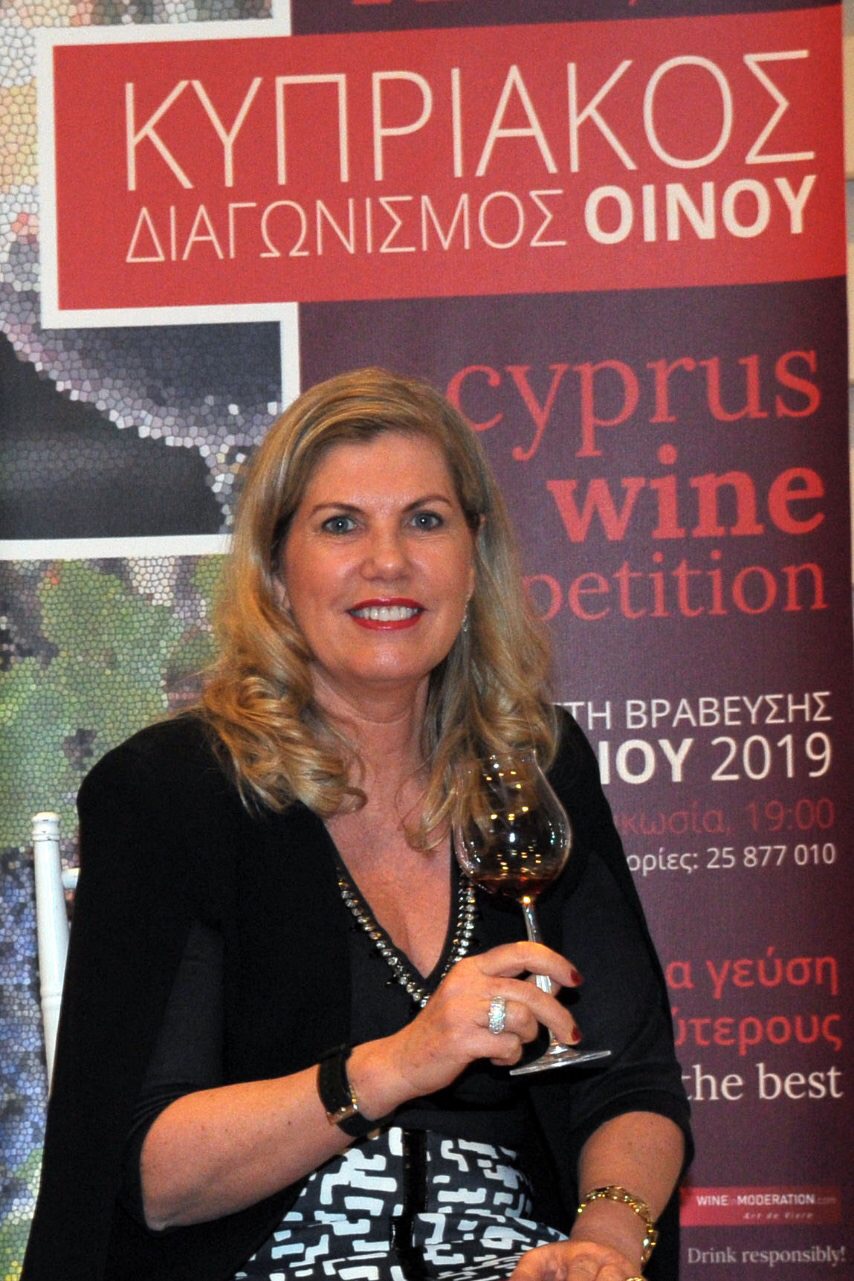
What about the value of medals?
With the OIV Rules, medals have a real value as we limit the awards to 30% of the wine presented, what sometimes lead to withdraw very valuable wines from the winner’s list.Therefore, when I participate in wine competitions I always give the biggest congratulations to the winners. Getting an award for a wine has a lot of significance.
It means that the one who created that wine was searching for an exceptional beverage with unique characteristics, assembling beautiful colours, multiple reflections, perfumes and their most subtle aromas. Here or anywhere else in the world of wine, it is the research of uniqueness that gives us motivation. Those who approach exceptional wines will always be rewarded. Most importantly, awarded wines are a reference for consumers and an important recognition for the producers.
8 facts about wine sector in Cyprus (source: Cypriot government)
- Cyprus is a historical wine region with more than 5.500 years of legacy
- Is the only phylloxera-free protected zone in the European Union (among the three phylloxera-free nations over the globe)
- The current surface under wine vineyards is 7.710 hectares
- It has a mosaic of ten unique indigenous wine cultivars of Vitis vinifera: Xynisteri, Local Mavron, Maratheftico, Giannoudi, Ofthalmo, Promara, Morocanella, Spourtico, Canella and Vlouriko
- The wine production in 2018 was 109.200 hectoliters
- Five regions are recognised as protected designations of origin (PDO’s): Commandaria, Krasochoria Lemesou, Laona Akamas, Vouni Panayia-Ampelitis and Pitsilia
- Commandaria, the sweet wine from sundried grapes is the uncontested flagship of the wine sector
- Four districts are recognised as protected geographical indications (PGI’s): Lemesos, Pafos, Larnaka, Lefkosia
Know more about the OIV standard
To know more about the OIV standard for international wine and spirituous beverages of vitivinicultural origin competitions follow this link
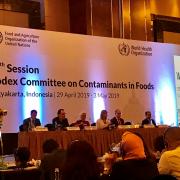
The Scientific Coordinator of the OIV, Jean-Claude Ruf, participated in the 13th CCCF session, which was held on 29 April-3 May 2019 in Yogyakarta, Indonesia.
Among the items on the agenda for this session, the delegations from Member States present discussed the revision of the maximum limits on lead in food, in particular for wine.
During the previous session in 2018, the OIV gave a speech indicating that the specific characteristics of certain types of wines should also be taken into account, such as fortified wines (a significant proportion of which would be excluded from international trade if the proposed limit was set at 0.05 mg/kg).
Moreover, following the 2018 meeting, the CCCF decided to re-establish an electronic working group, presided by the United States, to work on the maximum limits (ML) for wine obtained from grapes and fortified wines obtained from grapes harvested after the date of establishment of the ML.
For over a year, the OIV has been revising its own limits on lead
During the 13th CCCF session in 2019, the Committee discussed the recommendations of the working group regarding the maximum lead limits for wines and fortified wines. During its discussions, the OIV drew the CCCF’s attention to the fact that an overly low limit could have significant consequences for international trade. Additionally, Jean-Claude Ruf indicated that the OIV had been undertaking a revision of its own limits on lead for over a year now and that the revised limits would be proposed for final adoption during the next OIV General Assembly in July 2019 in Switzerland. This proposal aims to set the limit at 0.10 mg/L in wines and 0.15 mg/L in liqueur wines.
Finally the OIV encouraged the CCCF to take into account the OIV’s new work on this issue, in order to avoid any duplication or inconsistency in potential limits in the future.
Following the discussions within the CCCF, even though some delegations were in favour of an ML of 0.05 mg/kg for wines, a consensus was reached for an ML of 0.10 mg/kg in wines and a specific limit of 0.15 mg/kg in fortified/liqueur wines. These limits apply to products produced after the date of establishment of the ML. These proposals will be submitted for adoption by the Codex Alimentarius Commission in July 2019.
Consistency in standards and in international trade
The fact that the OIV and the Codex Alimentarius are adopting the same limits for wines and fortified/liqueur wines is therefore to be applauded, for the consistency of standards and international trade.
Furthermore, the Committee has also agreed to launch new work for 2020 on the revision of the Code of Practice for the Prevention and Reduction of Lead Contamination in Foods (CAC/RCP 56-2004), adopted by the Codex in 2004, in order to integrate methods of reduction of lead levels in food, including in wines.
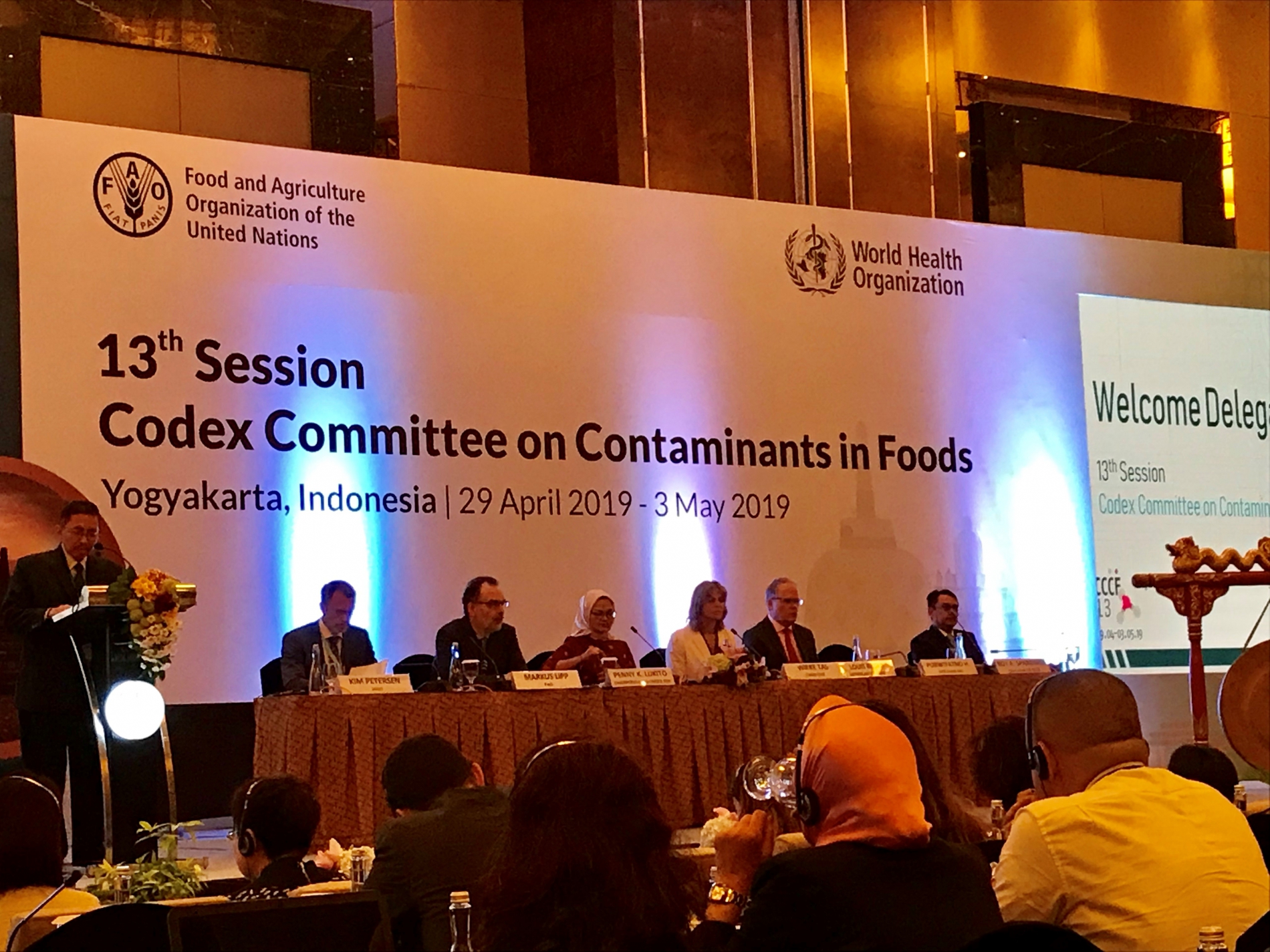

At the last meeting of the OIV’s Executive Committee, Director General Pau Roca informed Member States that a new lease had been signed for a functional site in rue Monceau (in the 8th arrondissement of Paris), while laying the groundwork for a more suitable location to be found with France, in its capacity as host State of the Organisation’s headquarters.
Located near Parc Monceau, the headquarters of the World Organisation for Animal Health (OIE), and a conference centre, the new headquarters will undergo some refurbishment work over the summer, which certain firms from the sector could support through sponsorship. For the remaining work, a call for interest has been issued in order to select suitably qualified firms.
Many Member States have expressed their regret at leaving the historic headquarters, remembered as the place where the Agreement re-establishing the OIV was negotiated. But they have also called for a solution to find, between now and the OIV’s centenary in 2024, a permanent site for the headquarters, where the Organisation can continue to develop new activities and meet the challenges of the next century.

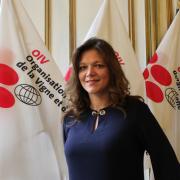
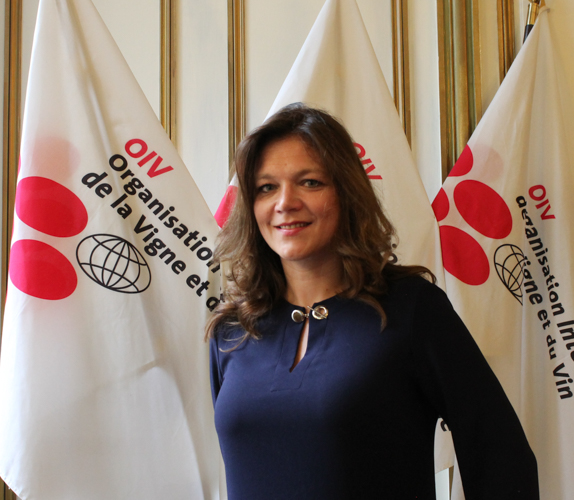
On 5 April 2019, the OIV Scientific and Technical Committee appointed the historian, medievalist, and specialist in the history of wine to the position of President of the International OIV Award Jury.
Azélina Jaboulet-Vercherre is the first woman to be appointed to this position since the creation of the OIV Awards in 1930.

The new President of the OIV Award Jury received her PhD in history from Yale and has been conferred degrees in no fewer than four disciplines, namely art history, archaeology, literature, and history.
Her thesis focused on medical literature and natural philosophy from the twelfth to the fifteenth centuries.
Apart from her studies in history, the author has developed her critical mindset thanks to her multidisciplinary educational background in art history and Anglo-American literature.
Her innovative style when it comes to wine is entirely unique: she draws attention to the harmony between wine, art, music, emotion and feelings.
Through her historiographical and cultural approach, she strives to promote renewal in the taxonomy of wine, going beyond conventional frameworks.
This interdisciplinarity brings a unique dimension to the wine history classes and lectures/wine-tastings she delivers worldwide.
A visiting professor at Sciences Po (Paris, Summer School), she was entrusted with the task of setting up the ‘Sciences Po Wine School’.
The several years she spent teaching at the Hospitality Management School of Lausanne (EHL) and at the Changins School of Oenology Engineering provided her with the opportunity to develop her knowledge of Swiss wines.
She is a wine judge and taster for a number of competitions.
Azélina Jaboulet-Vercherre has received two OIV Awards (2013 and 2015) and an OIV Special Mention (2017).
2013 OIV Award in History, Literature and Fine Arts with:
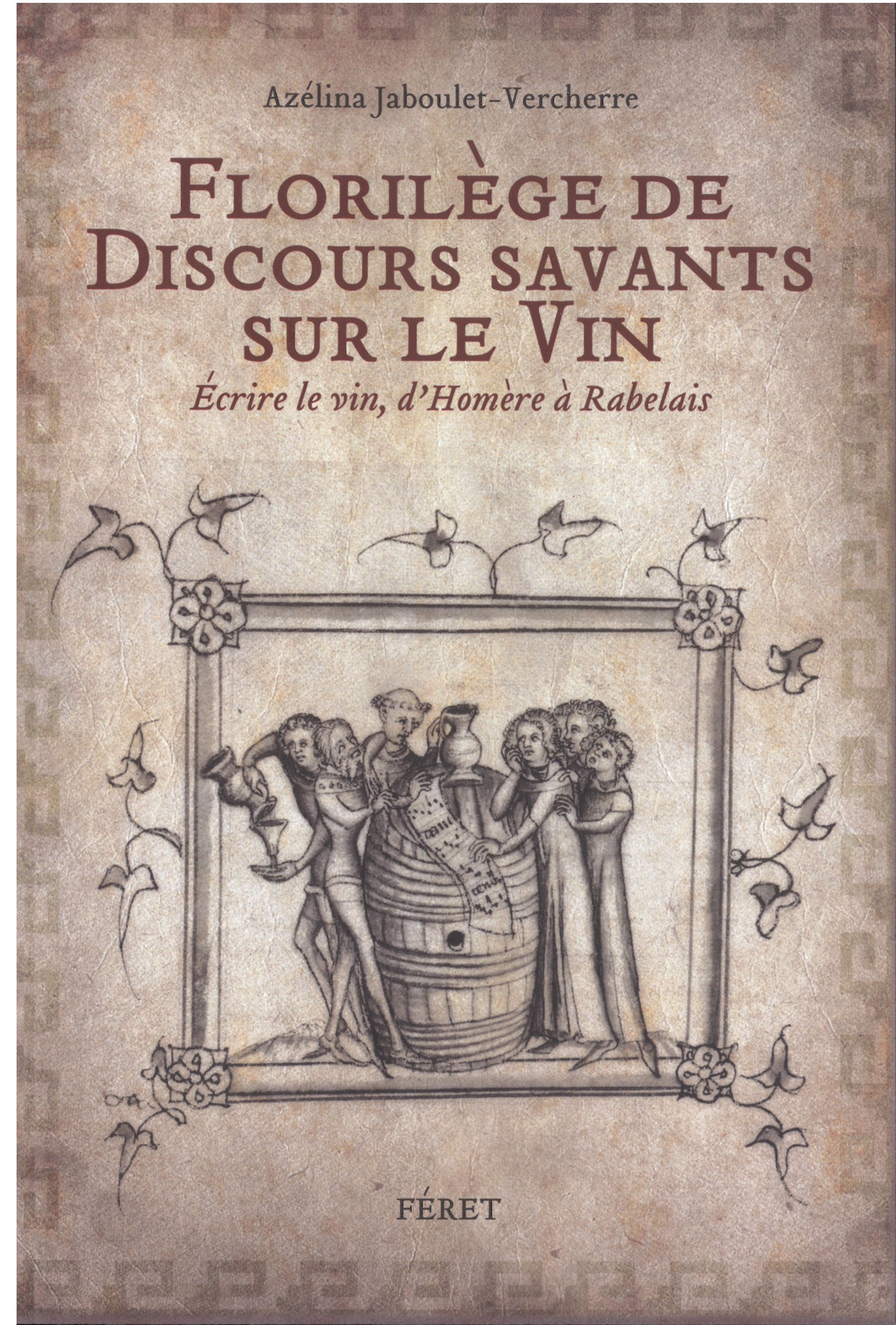
2015 OIV Award in Wine and Health with:
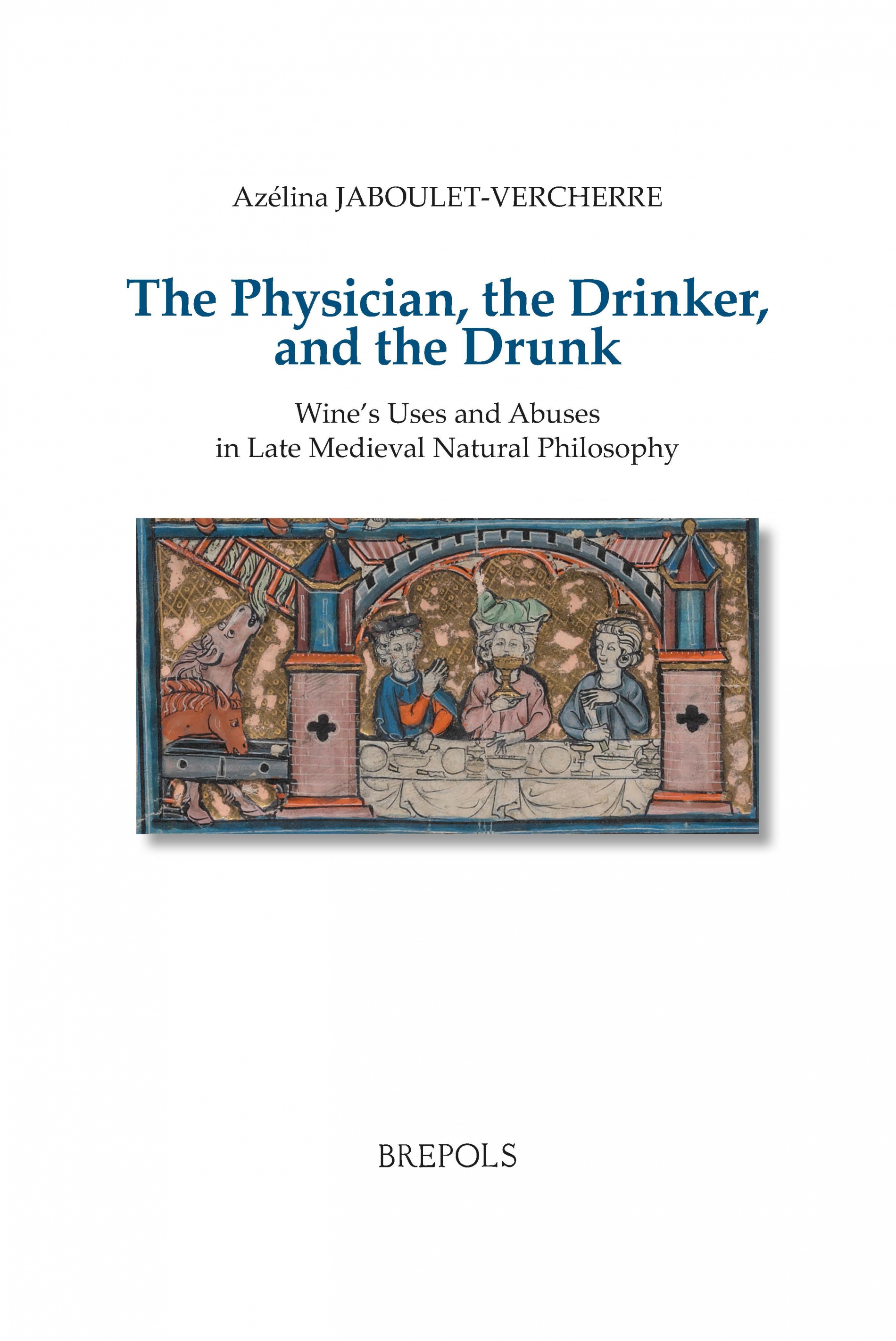
2017 OIV Special Mention in Literature with:
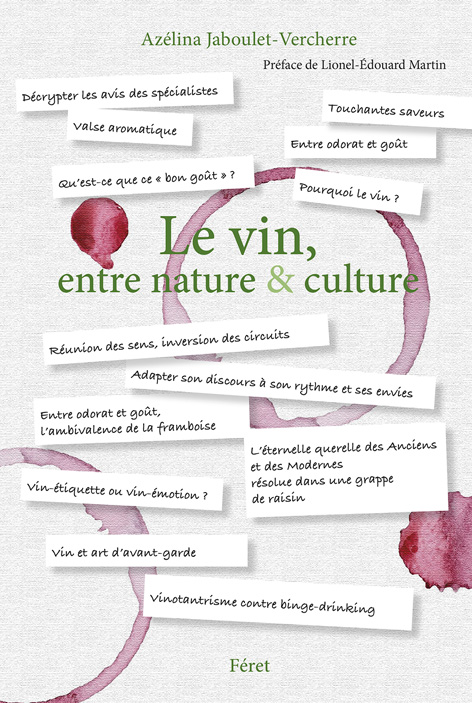
OIV AWARD JURY
MEMBERS 2019